 W
WHer Majesty's Most Loyal Opposition, or the Official Opposition, in the United Kingdom, is the main political opposition to Her Majesty's Government. This is usually the political party with the second-largest number of seats in the House of Commons, as the largest party will usually form the government. Since May 2010, the Official Opposition has been the Labour Party, led by Keir Starmer since 2020.
 W
WThe Shadow Secretary of State for the Future of Work is an office within British politics held by a member of Her Majesty's Loyal Opposition. The office is currently held by Angela Rayner.
 W
WHarriet Harman led the Shadow Cabinet during her time as pro tempore Leader of the Labour Party in 2010—from the time Gordon Brown resigned as Leader until Ed Miliband was elected to the leadership.
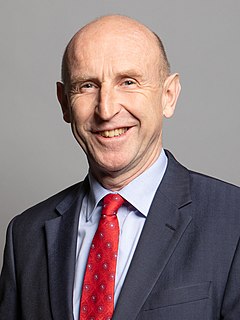 W
WJohn Healey is a British Labour Party politician serving as Member of Parliament (MP) for Wentworth and Dearne, formerly Wentworth, since 1997 and Shadow Secretary of State for Defence since 2020.
 W
WIn British parliamentary practice, the Official Opposition Shadow Cabinet consists of senior members of Her Majesty's Loyal Opposition who scrutinise their corresponding government ministers, develop alternative policies, and hold the government to account for its actions and responses. Since May 2010, the Labour Party has been Her Majesty's Loyal Opposition, and its leadership therefore forms the current shadow cabinet.
 W
WThe Second Shadow Cabinet of Edward Heath was created after the Conservative Party lost the February 1974 general election. It was led by the Leader of the Conservative Party Edward Heath and featured prominent Conservative politicians both past and future. Included was Heath’s successor Margaret Thatcher, the future Home Secretary William Whitelaw, and two future Foreign Secretaries, Lord Carrington and Francis Pym. For the first time in history, a leadership election was held in 1975 for the Conservative Party whilst the position was not vacant. Margaret Thatcher challenged Heath, with whom the majority of the party was dissatisfied because of repeated losses at elections. She won, becoming the first female leader of a major political party in Britain.
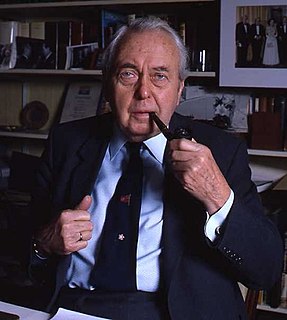 W
WHarold Wilson of the Labour Party would form his Second Shadow Cabinet, as Leader of Her Majesty’s Most Loyal Opposition, after losing the 1970 general election to Conservative Edward Heath. He would retain leadership of the Opposition for the length of the Heath Ministry, from 1970 − 1974. In February 1974, his party would narrowly win an election. Wilson was then forced to form a minority government, which would only last until another election in October of that year. After that election, Wilson would form a majority government.
 W
WHarriet Harman's second Shadow Cabinet was formed by Harriet Harman in 2015 during her second period as Acting Leader of the Labour Party. She assumed this role after Ed Miliband resigned as party leader and announced she would continue until a new leader was elected on 12 September 2015. Miliband's resignation followed the party's defeat at the 2015 general election.
 W
WThe Shadow Attorney General for England and Wales is an office within British politics held by a member of Her Majesty's Loyal Opposition. The duty of the office holder is to scrutinise the actions of the Attorney General for England and Wales and develop alternative policies. The Shadow Attorney General is not a member of the Shadow Cabinet, but attends its meetings.
 W
WEd Miliband became Leader of the Labour Party and Leader of the Opposition upon being elected to the former post on 25 September 2010. The election was triggered by Gordon Brown's resignation following the party's fall from power at the 2010 general election, which yielded a Conservative – Liberal Democrat Coalition. Miliband appointed his first Shadow Cabinet in October 2010, following the Labour Party's Shadow Cabinet elections. These elections were the last such elections before they were abolished in 2011.
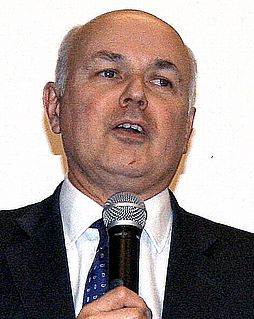 W
WThe UK Shadow Cabinet was appointed by Conservative Party leader Iain Duncan Smith. Following his initial appointments in September 2001 Smith managed three reshuffles before his resignation as leader in November 2003.
 W
WJames Callaghan became Leader of the Opposition on 4 May 1979 after losing the 1979 election and remained in that office until Michael Foot was elected Leader of the Labour Party on 2 October 1980. Callaghan named his Shadow Cabinet in June 1979, with Foot and the 12 elected members of the Shadow Cabinet assigned portfolios on 14 June and further appointments made on 18 June. From the opening of Parliament until that date, Callaghan's Cabinet, with a few exceptions, stayed on to shadow their former positions.
 W
WJeremy Corbyn assumed the position of Leader of the Opposition after being elected as leader of the Labour Party on 12 September 2015; the election was triggered by Ed Miliband's resignation following the Labour Party's electoral defeat at the 2015 general election when David Cameron formed a majority Conservative government. The usual number of junior shadow ministers were also appointed.
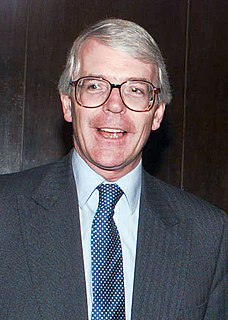 W
WJohn Major, Leader of the Conservative Party was Leader of the Opposition from 2 May 1997, following his defeat at the 1997 general election, until 19 June 1997, when William Hague was elected to succeed him. Following the defeat, Major announced his resignation as leader. But, for logistical reasons, a new leader could not be elected for several weeks. In the intervening period, Major appointed an interim Shadow Cabinet.
 W
WJohn Smith was Leader of the Labour Party and Leader of the Official Opposition from 18 July 1992 until his death on 12 May 1994. Smith became leader upon succeeding Neil Kinnock, who had resigned following the 1992 general election—for the fourth successive time, the Conservatives had won and Labour lost.
 W
WKeir Starmer became Leader of the Opposition in the United Kingdom after being elected as Leader of the Labour Party on 4 April 2020. Starmer appointed his Shadow Cabinet on 5 and 6 April.
 W
WMargaret Beckett led the United Kingdom Shadow Cabinet when she was Leader of the Labour Party on a pro tempore Leader of the Opposition basis between the death of John Smith on 12 May 1994 and Tony Blair's election as Leader on 21 July 1994, an election in which Beckett was also a candidate. Her Shadow Cabinet was identical to Smith's final one with the exception of her role and the appointment of Nick Brown as Acting Shadow Leader of the House of Commons.
 W
WMichael Foot was Leader of the Opposition from 4 November 1980, following his victory in the 1980 leadership election, to 2 October 1983, when he was replaced by Neil Kinnock at the 1983 leadership election. The 1980 election was triggered by James Callaghan's loss at the 1979 general election, and Foot's own disastrous defeat in the 1983 general election.
 W
WThe Shadow Cabinets appointed by Michael Howard, a Conservative, are listed below.
 W
WNeil Kinnock was Leader of the Labour Party and Leader of the Opposition from 2 October 1983 to 18 July 1992. He convincingly defeated Roy Hattersley, Eric Heffer, and Peter Shore in the 1983 leadership election, which was prompted by Michael Foot's resignation following the disastrous general election result earlier that year. Kinnock's period as Leader encompassed the bulk of the Thatcher years and the first two years of Major premiership. Kinnock resigned in 1992 after losing his second election as Leader.
 W
WTony Blair, as Leader of the Labour Party, was Leader of the Opposition in the United Kingdom from his election as Leader on 21 July 1994 until he became Prime Minister on 2 May 1997. He announced his first Shadow Cabinet on 20 October 1994.
 W
WThe Shadow Cabinet appointed by Conservative Party leader William Hague was the Official Opposition Shadow Cabinet from 1997 to 2001. Following his initial appointments in June 1997, Hague reshuffled the Shadow Cabinet five times before his resignation as leader following defeat in the 2001 general election.
 W
WThe Shadow Chancellor of the Duchy of Lancaster is a position in the British Shadow Cabinet, appointed by the Leader of the Opposition. The post involves holding the Chancellor of the Duchy of Lancaster to account, who has control over the estates and rents of the Duchy of Lancaster. The position was re-established by Keir Starmer in April 2020, replacing the position of Shadow Lord President of the Council last held by Jon Trickett, which was split from Shadow Leader of the House of Commons by former Labour leader Jeremy Corbyn.
 W
WThe Shadow Chancellor of the Exchequer in the British Parliamentary system is the member of the Shadow Cabinet who is responsible for shadowing the Chancellor of the Exchequer. The title is in the gift of the Leader of the Opposition but is informal. The Shadow Chancellor has no constitutional role.
 W
WThe Shadow Chief Secretary to the Treasury is the most junior member of the Shadow Cabinet, and is the deputy to the Shadow Chancellor of the Exchequer. The Shadow Chief Secretary to the Treasury acts as the primary opposition to the equivalent Governmental position, the Chief Secretary to the Treasury, who is deputy to the Chancellor of the Exchequer. Currently the position of Shadow Chief Secretary to the Treasury is held by Bridget Phillipson of the Labour Party.
 W
WThe Shadow Economic Secretary to the Treasury is a role in the Official Opposition frontbench. The role of the office is to shadow the Economic Secretary to the Treasury.
 W
WThe Shadow Exchequer Secretary to the Treasury is a member of the Official Opposition frontbench in the United Kingdom. The officeholder shadows the Exchequer Secretary to the Treasury. The current officeholder is Labour MP Abena Oppong-Asare shadowing Kemi Badenoch.
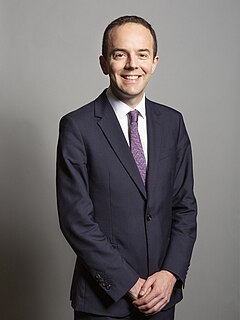 W
WIn British politics, the Shadow Financial Secretary to the Treasury is a shadow ministerial position of the Official Opposition that acts as the primary opposition to the equivalent position Financial Secretary to the Treasury, a government minister in HM Treasury. The position is currently held by James Murray.
 W
WThe Shadow First Secretary of State is a position in the United Kingdom's Shadow Cabinet that was created on 11 May 2015 by the Leader of the Opposition, Harriet Harman for her interim shadow cabinet. From 2005 to 2010, the office was known as Senior Member of the Shadow Cabinet, and from 2010 to 2015, the office was known as Shadow Deputy Prime Minister of the United Kingdom.
 W
WIn British politics, the Shadow Home Secretary, is the person within the shadow cabinet who shadows the Home Secretary; this effectively means scrutinising government policy on home affairs including policing, national security, the criminal justice system, the prison service, and matters of citizenship. If the opposition party is elected to government, the Shadow Home Secretary often becomes the new Home Secretary, though this is not always the case. The office has been held by Labour MP Nick Thomas-Symonds since 5 April 2020.
 W
WThe Shadow Leader of the House of Commons is a member of the Official Opposition Shadow Cabinet responsible for working with the Leader of the House in arranging Commons business and holding the Government to account in its overall management of the House. The Shadow Leader also responds to the Business Statement of Leader of House each Thursday, though the Leader of the Opposition exercised this role until the late 1980s. The office is roughly equivalent to the Leader of the Opposition in the House of Lords.
 W
WThe Shadow Lord Chancellor is the member of the British Shadow Cabinet who shadows the Lord Chancellor, an office which has existed since the Norman Conquest. Since 2010, the officeholder has jointly held the title Shadow Secretary of State for Justice. The current Shadow Lord Chancellor is David Lammy.
 W
WThe Shadow Secretary of State for Women and Equalities is a position in the United Kingdom's Official Opposition, and sits in the Shadow Cabinet. The Shadow Secretary of State is responsible for holding the Minister for Women and Equalities, responsible for the Government Equalities Office, to account and is responsible for Opposition policy on women's and equality issues.
 W
WIn British politics, the Shadow Minister for Peace and Disarmament is a position within the opposition that deals with issues surrounding North Africa, the Middle East, North Korea and policy on nuclear weapons. The incumbent is Fabian Hamilton. The position was created by Jeremy Corbyn and has no equivalent in Her Majesty's Government.
 W
WThe Parliamentary Under-Secretary of State for the Armed Forces, formerly of Minister of State rank, is a junior ministerial position at the Ministry of Defence in Her Majesty's Government. When titled as Minister of State, the office previously acted as the deputy to the Secretary of State for Defence.
 W
WThe minister for the Cabinet Office is a position in the Cabinet Office of the United Kingdom. The minister is responsible for all Cabinet Office policies and leading the department.
 W
WThe Shadow Secretary of State for Women and Equalities is a position in the United Kingdom's Official Opposition, and sits in the Shadow Cabinet. The Shadow Secretary of State is responsible for holding the Minister for Women and Equalities, responsible for the Government Equalities Office, to account and is responsible for Opposition policy on women's and equality issues.
 W
WThe Shadow Secretary of State for Business, Energy and Industrial Strategy is an office within British politics held by a member of Her Majesty's Loyal Opposition. The duty of the office holder is to scrutinise the actions of the government's Secretary of State for Business, Energy and Industrial Strategy and develop alternative policies. The office holder is a member of the Shadow Cabinet. The position is currently held by former Labour leader Ed Miliband since 6 April 2020.
 W
WThe Shadow Secretary of State for Child Poverty is a position in the United Kingdom's Shadow Cabinet that was created on 9 May 2021 by the Leader of the Opposition, Keir Starmer during a cabinet reshuffle.
 W
WThe Shadow Secretary of State for Communities and Local Government is a position with the UK Opposition's Shadow Cabinet; if the opposition party forms a new government, the designated person is a likely choice to become the new Communities Secretary.
 W
WThe Shadow Secretary of State for Digital, Culture, Media and Sport, previously Shadow Secretary of State for Culture, Media and Sport and Shadow Secretary of State for National Heritage, is a post in the Official Opposition Shadow Cabinet. The Shadow Secretary helps hold the Secretary of State for Digital, Culture, Media and Sport and junior ministers to account and is the lead spokesperson for his or her party on culture, media and sport issues, including obvious ones, such as art funding, and more unexpected ones, like keeping up the Royal Estate. Should the relevant party take office, the Shadow Secretary would be a likely candidate to become Culture Secretary.
 W
WThe Shadow Secretary of State for Defence is a member of the UK Shadow Cabinet responsible for the scrutiny of the Secretary of State for Defence and the department, the Ministry of Defence. The post is currently held by John Healey.
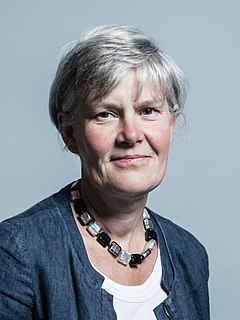 W
WThe Shadow Secretary of State for Education, also called the Shadow Education Secretary, is an office in the Official Opposition Shadow Cabinet responsible for Opposition policy on education and for holding the Secretary of State for Education, junior education ministers, and the Department for Education to account. The current officeholder is Kate Green MP.
 W
WShadow Secretary of State for Environment, Food and Rural Affairs is a position with the UK Opposition's Shadow Cabinet that deals with issues surrounding the environment and food and rural affairs; if the opposition party is elected to government, the designated person is a likely choice to become the new Secretary of State for Environment, Food and Rural Affairs.
 W
WIn UK politics, the shadow secretary of state for foreign and Commonwealth affairs is a position within the opposition's shadow cabinet that deals mainly with issues surrounding the Foreign Office. If elected, the person serving as shadow foreign secretary may be designated to serve as the new Foreign Secretary.
 W
WThe Shadow Secretary of State for Health and Social Care is an office within British politics held by a member of Her Majesty's Loyal Opposition. The duty of the office holder is to scrutinise the actions of the government's Secretary of State for Health and Social Care and develop alternative policies. The office holder is a member of the Shadow Cabinet and appointed by the Leader of the Opposition.
 W
WThe Shadow Secretary of State for Housing is a position in the United Kingdom's Shadow Cabinet that was created on 7 October 2016 by the Leader of the Opposition, Jeremy Corbyn during a cabinet reshuffle. This position succeeds the position of Shadow Minister for Housing and Planning, and as of present shadows the Minister of State for Housing at the Department for Levelling Up, Housing and Communities in Her Majesty's Government. The office is currently held by Lucy Powell who was appointed to Keir Starmer's Shadow Cabinet in May 2021.
 W
WThe shadow secretary of state for international development is the lead spokesperson for the United Kingdom's Official Opposition on issues related to international aid, most notably to the third world. The Shadow Cabinet position has no counterpart in the British Government after DFID and the role of International Development Secretary was abolished by the second Johnson government in 2020.
 W
WIn British politics, the Shadow Secretary of State for International Trade is a position within the opposition's shadow cabinet that deals with issues surrounding UK trade negotiations. If elected, the person designated as Shadow Secretary of State may be slated to serve as the new Secretary of State. The incumbent is Emily Thornberry who has served in the role since 6 April 2020.
 W
WIn British politics the Shadow Secretary of State for Justice is the member of the Shadow Cabinet who shadows the Secretary of State for Justice, an office which has existed since 2007. Prior to 2007, the office was known as Shadow Secretary of State for Constitutional Affairs. The current Shadow Secretary of State for Justice is David Lammy, who succeeded Richard Burgon on 6 April 2020.
 W
WThe Shadow Secretary of State for Mental Health is a position in the United Kingdom's Shadow Cabinet that was created on 14 September 2015. It was formerly a ministerial position, before being promoted in the 2021 cabinet reshuffle.
 W
WThe Shadow Secretary of State for Northern Ireland is a member of the British Shadow Cabinet responsible for the scrutiny of the Secretary of State for Northern Ireland and their department, the Northern Ireland Office. The post is currently held by Louise Haigh, following the resignation of Tony Lloyd. The holder is assisted by junior shadow ministers in the Commons and in the Lords.
 W
WThe Shadow Secretary of State for Scotland is a member of the UK Shadow Cabinet responsible for the scrutiny of the Secretary of State for Scotland and his/her department, the Scotland Office. The incumbent holder of the office is Ian Murray.
 W
W W
WThe Shadow Secretary of State for Work and Pensions is an office within British politics held by a member of Her Majesty's Loyal Opposition. The duty of the office holder is to scrutinise the actions of the government's Secretary of State for Work and Pensions and develop alternative policies. The office holder, currently Jonathan Reynolds, is a member of the Shadow Cabinet.
 W
WThe Shadow Secretary of State for Young People and Democracy is a position in the United Kingdom's Shadow Cabinet that was created on 14 September 2015. It was previously known as Shadow Minister for Young People and Voter Registration and Shadow Minister for Voter Engagement and Youth Affairs.
 W
WThe Shadow Solicitor General is a member of the Official Opposition frontbench.
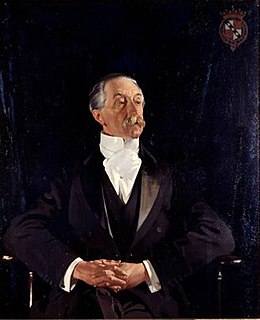 W
WThe Vice-Chamberlain of the Household is a member of the Royal Household of the Sovereign of the United Kingdom. The office-holder is usually a junior government whip in the British House of Commons ranking third or fourth after the Chief Whip and the Deputy Chief Whip. He or she is the Deputy to the Lord Chamberlain of the Household. The Vice-Chamberlain's main roles are to compile a daily private report to the Sovereign on proceedings in the House of Commons and to relay addresses from the Commons to the Sovereign and back. As a member of the Royal Household, the Vice-Chamberlain accompanies the Sovereign and Royal Household at certain diplomatic and social events, particularly the annual garden party at Buckingham Palace. When the Sovereign goes in procession to Westminster for the State Opening of Parliament, the Vice-Chamberlain stays and is "held captive" at Buckingham Palace. This custom began with the Restoration (1660), because of the previous Vice-Chamberlain's role in the beheading of Charles I.
 W
WThe Shadow Secretary of State for Transport is a political post in the United Kingdom. It has been consistently held by a member of the Official Opposition Shadow Cabinet since May 1979. The Shadow Secretary helps hold the Transport Secretary and junior ministers to account and is the lead spokesperson on transport matters for his or her party. Should the relevant party take office, the Shadow Secretary would be a likely candidate to become Transport Secretary.